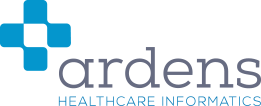The RCGP has a comprehensive toolkit to help practices implement online services safely.
There are numerous benefits with proxy record access for most children and families, but Practices need to be careful to protect the small number of children and young people who could be at serious risk of harm from their family if medical information (such as use of the contraceptive pill) is inadvertently disclosed.
The RCGP recommends access based on three age milestones as below, but the practice has the final say as to how to implement proxy access.
Registration
As with other online record access registrations the practice should go through a registration process and gain proof of ID, but in addition parental responsibility or right of access to the childs record should be established.
Definition of Parental responsibility
All mothers and most fathers have legal rights and responsibilities as a parent - known as ‘parental responsibility’. Someone with parental responsibility is responsible for, among other things, agreeing to the child’s medical treatment. A parent who does not live with the child still has a right to be kept updated about their well-being and progress. Circumstances surrounding who has parental responsibility may be complicated, therefore access should be granted on a case by case and, if necessary, with advice from a medical defence body.
Setting up a childs account
in SystmOne you can either:
- Enable proxy access to online services on behalf of the child through a parent / carers own account
- Register the child for online services in their own right
If you want to register a child under 16 (aged 0 to 15 years) for online services in their own right, you must first perform a competency assessment and add one of the following Read codes to their SystmOne patient record:
A child under 16 with the 'Not Gillick competent for consent [XaXLv]' Read code recorded cannot be Registered for online services in their own right.
Giving Proxy Access
- Open the parent / guardian or carers record who requires access to the childs record and
- In the 'Online Services' node click on 'Allow access to another patients record'
- Search for the child and select from the list
- Specify which services the proxy should have access to and record relationship and consent
Once you have done this you will see the account that the proxy has access to listed below their own online account details.
Milestone 1: 11th birthday
Generally upto the age of 11, the usual position would be for the parents of the child to control access to their childs record and online services.
You can specify in SystmOne an age limit for this by going to Setup >Users & Policies >Organisation Preferences >Online Services >Patient access available for children until the age of ""
Milestone 2: Between the 11th and 16th birthdays
Decisions made at the first milestone can be re-considered and changed later. Each case must be considered individually for the best interests of the child. For example, parents with online access on behalf of children and young people with long term conditions that require regular monitoring and medication may have a good case for continued access after the 11th birthday but this must be balanced against the risks that may arise as the young person becomes competent to make their own decisions about their healthcare which will vary from person to person.
There is no automatic age control setting for this in the 'Organisational Preferences'
Milestone 3: 16th birthday
Once a young person turns 16, the previous competence assessment by default is no longer applicable as they are assumed to have capacity unless there is an indication to the contrary.
The parents access should usually be withdrawn when the child reaches their 16th birthday.
A report can be created for proxy access but the options are quite limited, a separate article has been created for this Proxy Access Audit

